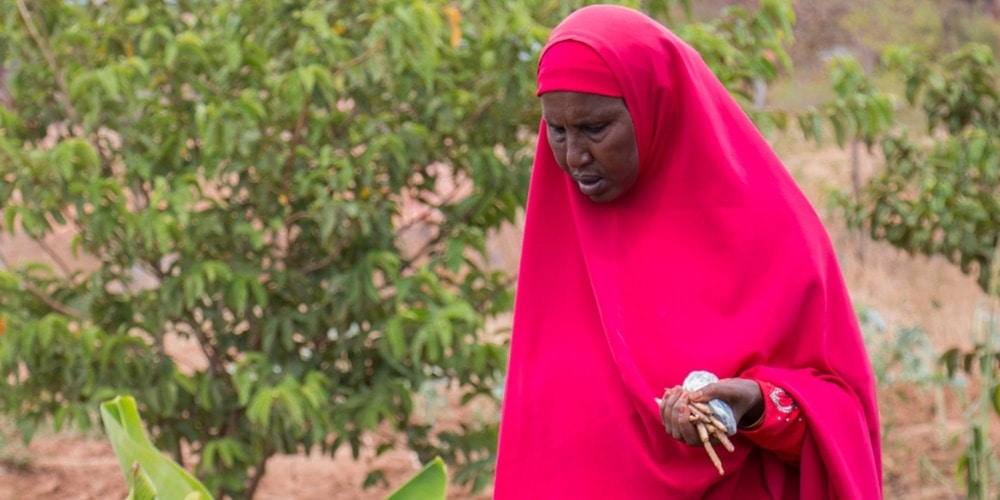
As the Seventh-day Adventist Church’s humanitarian arm, the Adventist Development and Relief Agency (ADRA) believes in serving humanity so all may live as God intended. The “all” encompasses anyone in need, regardless of race, ethnicity, gender, religious beliefs, political affiliations, or other considerations.
As a faith-based organization, ADRA has gone into some communities and met with understandable skepticism. The Muslim villages in Mandera West, Kenya, had their reservations when ADRA first offered to help in 2013.
“It’s good to be frank,” said Mohamed, a village chief. “When ADRA first came, people had a bad perception of them. Why are they here? Is it to make people Christian? Are they here to convert people by force? Many people wanted to refuse any aid coming from ADRA.
“As leaders, we said religion is not a must anywhere. All other agencies that have been here were Christian, not only ADRA. So why single out ADRA? We tried to teach our people. We know that we can coexist together as human beings. Not just as religious denominations but as human beings.
“ADRA never tried to convert people, as they feared. But it has changed their lives.”
For the past seven years, this region of Kenya has been enduring prolonged drought. The people are primarily semi-nomadic herders. The drought devastated their flocks, leaving them without a livelihood or sustenance. ADRA, in partnership with the Canadian Foodgrains Bank, provided emergency food assistance to hundreds of families.
The initial emergency project has become a long-term livelihood project. This work is improving the people's ability to withstand the many climatic and economic blows they face.
ADRA taught the people how to grow kitchen gardens using permaculture techniques suited to the arid climate. They are now growing vegetables and even fruit.
The people also learned a method of land reclamation called Farmer Managed Natural Regeneration. This method taught them how to reclaim and preserve pasturelands, plan their cattle grazing, and plant, harvest, and store fodder against drought seasons.
ADRA also helped the communities establish savings and loan groups. During times of emergency or drought, the members can draw a loan to help carry them through the challenging time.
The people have built on these learnings in enterprising ways. The project’s positive economic impact has spurred a Kenyan national bank to open the first branch in this region.
“Things are changing from the past to the present,” Mohamed said. “What I see now is a huge change. A drastic change. It's a revolution.”
In order to safeguard these opportunities to make a real difference in the lives of the most vulnerable, ADRA does not evangelize in traditional ways — not in words or through Bible studies. ADRA believes that through actions of justice, love, and compassion, it is possible to make known God’s true character to a broken and hurting world. By not imposing beliefs directly, ADRA builds trusting relationships in communities that might otherwise be closed to receiving the assistance and especially the perspective of our merciful God that the agency wishes to offer.
The original version of this story was posted by the Adventist Development Relief Agency in Canada.